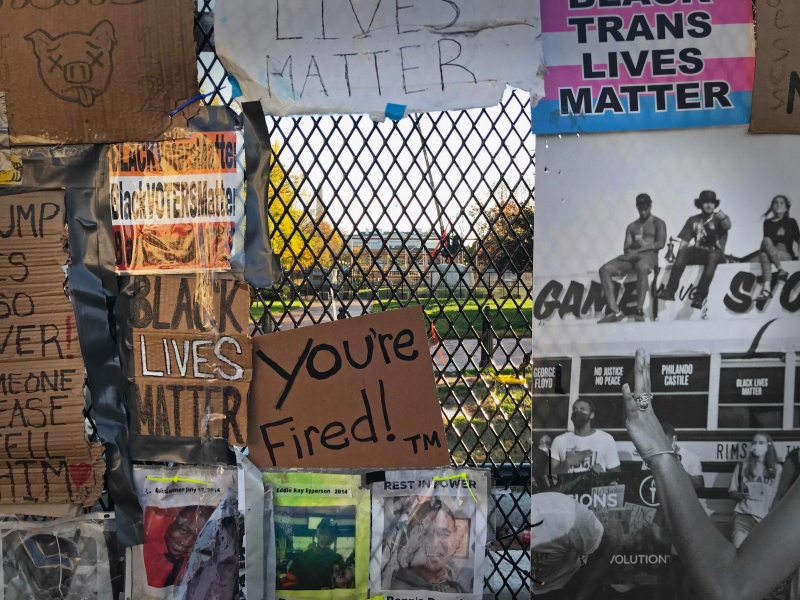At the beginning of July during the pandemic, while I was scrolling through my social media, I noticed a post concerning ICE changing its regulations for international students. The article mentioned that, despite most colleges going online, the Trump administration was planning to prohibit international college students from remaining in the U.S. if their programs migrated to a remote mode of teaching. The news was both unsettling and laughable, given that Republicans are the fiercest advocates of free-market capitalism. During a deadly worldwide healthcare crisis that turned into an economic one, hundreds of thousands of international students helped support their local American communities financially (NAFSA: Association of International Educators estimates our contribution to 41 billion dollars for 2018-2019). International students have rented overpriced apartments in college towns for decades while they supported local businesses by purchasing goods and services. With our high tuition, limited funding, and underpaid labor, we provide high-quality education to undergraduates and we staff innumerable campus labs that pursue state-of-the-art research. Universities around the country, several Ivy League schools among them, realized the consequences of these new regulations and moved to contest them in court. In doing so, they used a rhetoric of liberal economics seasoned with a pinch of humanism, underscoring institutional financial impact and the need to protect their international student population. The Trump administration backed off.
To many of our American colleagues, the Trump administration’s initiative constituted the first direct attack against the international student population. For us, it simply escalated the series of extreme restrictions that shape our lives in the US, constantly threatening our documented presence and forcing us to find our way through a labyrinth of bureaucracy. As tremendously difficult as graduate student life is for many in this country, international students face a distinct set of challenges that verge on the existential. Our status as students depends on two official documents, the I-20 and the student visa, that require proof of financial eligibility and a trip to an embassy abroad, plus a student visa interview every time they expire. We come to this country effectively under the threat of erasure, since at any point and for no reason, a TSA official has the right to deny us entry. The same applies to any visa renewal application we submit. We are only allowed to work 20 hours per week at our institutions, and we cannot take part-time positions to supplement our inadequate funding. If an international student is married, his or her legal partner is unable to work; for a couple to survive, they need either to live at poverty level or to transfer a considerable amount of money from overseas, which only the privileged can afford. At the same time, and even though with our limited stipends we still pay federal and state taxes, we have no guaranteed unemployment benefits (or to a stimulus check for that matter). All these restrictions existed before Trump’s openly xenophobic administration, but universities consistently resist alleviating our economic precarity as they might by raising our wages, providing affordable housing, or fighting for our partners’ rights to work part-time on campus. Judging from the fact that it took the threat of the new regulations to make higher education institutions support us so publically, I believe a dubious utilitarianism forced the schools to intervene on our part. They did so only to protect revenue, either because they might receive less tuition from those international students who pay out of pocket or because they might lose part of their cheap graduate student labor force.
As someone whose research involves thinking about Romanticism and time, I’ve noticed that myself and other international students experience temporal inequality in the US. By magnifying unexpectedly the material vulnerability of our condition, the Trump administration made visible to institutions, colleagues, and friends that we inhabit multiple, conflicting temporalities. On the one hand, our lives are organized around the routine demands of teaching and study, as well as those involving our intellectual and professional development. On the other hand, our student status allows us to live in the US only temporarily. We count our time in this country backwards from the moment of our un/willed departure. Status renewals or professional training extensions buy us tiny chunks of time that expire after a few months, briefly suspending uncertainty over our departure, while work visas remind us that we will be asked to leave within 10 days if our contracts do not get renewed. Despite economic, educational, and cultural contributions that persist long after we are gone, our documented presence in the US does not count towards a green card, even when some students, such as my friend Katarina, have lived in the States for over a decade pursuing an undergraduate, a Masters and then a doctoral degree.
International student time is always out of sync with American time. Our time is considered too much when the State determines it and not enough when the State demands documentation of our presence. As heterogenous and fragmented as American temporality might seem, an alien resident’s experience of time in this country is defined by a basic alienation from the temporal common that all US citizens actually share. In addition, our home countries have temporalities of their own, with which most of us have failed to keep in sync. Aspects of our social lives move forward or backward with a tempo we cannot follow because we now inhabit different social structure whose temporality we must follow. Many of us actively tried to escape the temporality of our home countries to avoid the interminable repetition of war (as an Israeli colleague once confessed), or the backwardness of sexism and homophobia, or the slow violence of unemployment (close to 60% for youth in Greece). Trump’s possible run in the 2024 elections reminds us that even if we make it in the United States until then, our time might run out for good.
The U.S. government has long established a complex system to control the presence of foreign nationals in its territory, with very few qualifying for secure status as documented immigrants. For the rest of us, officially termed “nonimmigrants,” our presence is contingent on a discourse that combines Adam Smith’s laissez faire laissez passer with a white, monocultural nationalism requiring strict government control of the workforce that takes into consideration only immediate monetary returns. In this discourse foreigners are welcome only if they work too much and they do exactly as they are told when they are told to do it. The pandemic has exposed many pre-existing inequities in U.S. society, and Trump’s actions reveal yet another: the temporal inequality experienced by nonresident aliens living in the United States.
In retrospect, the Trump administration did us a favor by highlighting how we constantly face the threat of erasure, with our documented time always counting backwards, ready to expire at a moment’s notice. This situation might have provided a starting point for international students and the institutions that allegedly care for our wellbeing to begin discussing how best to achieve our equitable inclusion in all aspects of American time. I believe we have lost this opportunity, at least for now.


